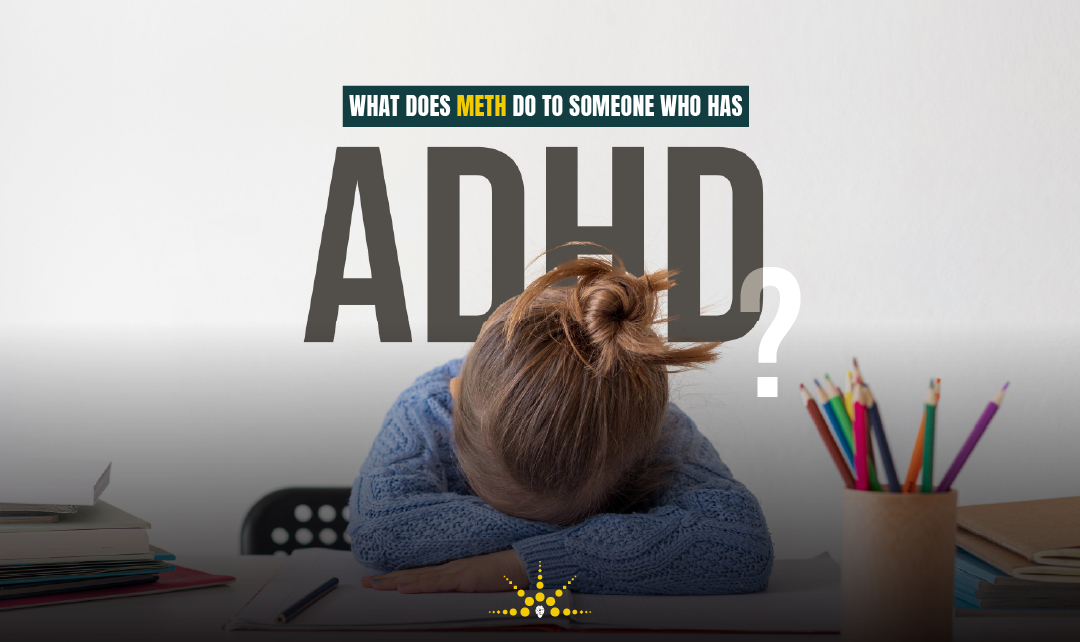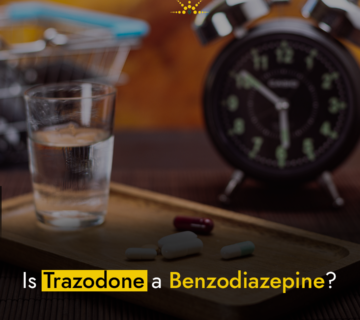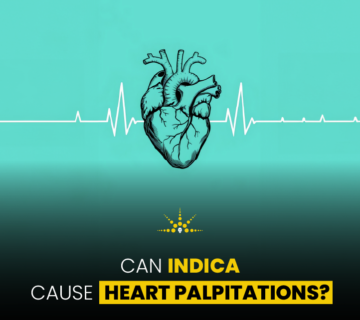What is ADHD?
Attention Deficit Hyperactivity Disorder (ADHD) is a neurodevelopmental disorder that affects both children and adults. It is characterized by symptoms such as inattention, hyperactivity, and impulsivity.
People with ADHD might find it challenging keeping their mind on tasks. It’s also tough for them to stay organized and handle impulses. This may cause issues in their learning, work, and friendships.
Symptoms of ADHD
Inattention
- Difficulty sustaining attention in tasks or play activities
- Often, little mistakes sneak into schoolwork and other tasks
- Seems to zone out when talked to
Hyperactivity
- Fidgets with hands or feet, or squirms in seat
- Runs or climbs in situations where it is inappropriate
- Talks excessively
Impulsivity
- Irresistibly blurts out responses, even before the question’s fully asked
- Has difficulty waiting for their turn
- Interrupts or intrudes on others’ conversations or games
What is Methamphetamine?
Overview of Meth
Meth, also called methamphetamine, is an extremely potent and easily addictive drug. It targets our central nervous system and is readily abused. Mainly, meth brings about strong feelings of bliss. It happens when there’s a surge of dopamine in our brain.
How Meth Works
Let’s talk about how it works. Meth boosts the dopamine amount in our brain, it enlivens our brain cells, and improves our mood plus body movements. Yet, when this dopamine increase is not natural, it could lead to severe addiction risks. It can also significantly harm the brain and body over time.
What Does Meth Do to Someone Who Has ADHD
Similarities Between Meth and ADHD Medications
Drugs like Adderall, Ritalin, and methamphetamine fall under the stimulant category. ADHD patients often use medicine like Adderall and Ritalin. These meds increase dopamine in the brain, enhancing focus and attention.
But, there’s a huge difference in how these drugs work and the risk of misuse.
Controlled Use vs. Abuse
When it comes to ADHD medications, doctors give them in measured doses. They keep a careful watch to ensure safety and results. Meth, on the other hand, is usually used in unpredictable, dangerous amounts. This can lead to a high chance of becoming addicted and serious health problems.
The Risks of Meth Use for People with ADHD
People with ADHD must be cautious with meth. This potent drug may briefly boost the focus, and energy, but it packs more harm than good.
Increased Risk of Addiction
Those with ADHD often look for ways to raise their concentration and energy. Meth offers a quick fix but it also opens the door to a great danger of addiction.
Negative Effects on Mental Health
Mental and physical health can be severely affected by meth use, especially in people with ADHD. Feelings of unease, sadness, and distrust may increase due to the drug’s influence on the brain. The task of handling ADHD gets tougher.
Physical Health Risks
Meth use can cause severe physical health issues, including:
- Cardiovascular problems such as increased heart rate and blood pressure
- Weight loss and malnutrition
- Dental issues, commonly known as “meth mouth”
- Skin sores and infections
Is Meth Like Adderall?
Amphetamine vs Methamphetamine: Adderall and meth are both stimulants. But they are not interchangeable: Adderall is made of amphetamine salts.
Meth, a more potent relative of amphetamine, follows closely in line.
Adderall is legal—doctors prescribe it for ADHD and narcolepsy. Meth, however, is almost never prescribed. Most know it as an illegal drug.
Meth is much more potent. It has more potential for misuse and dependency than Adderall.
Adderall is lawfully dispensed and controlled, while meth is largely unlawful. Misusing it can have serious health impacts.
Managing ADHD Safely
Seeking Professional Help
When you or loved ones deal with ADHD, it’s crucial to have a conversation with a healthcare professional. They stand ready with a variety of treatments, customized and efficient, involving medication or counseling.
Healthy Coping Strategies
Besides medical interventions, some simple strategies also work wonders to mitigate ADHD’s impact:
- Creating and maintaining a routine
- Breaking tasks into smaller, manageable steps
- Staying organized with planners and alerts
- Engaging in consistent physical activities to control hyperactivity and strengthen concentration.
Takeaway
Methamphetamine, a hazardous, highly addictive drug, poses serious threats, especially for ADHD patients.
Despite some short-lived improvements in focus and attention, the lasting dangers overshadow any transient benefits.
It’s crucial to pursue expert guidance and consider safe, effective treatments for handling ADHD. If you or a family member grapples with ADHD and thinks about hazardous substances like meth, now’s the moment to act.
At SafeStar Psychiatric, we give you the thorough and empathetic care you need to handle ADHD risk-free.
The provider, Dr. Davidson, DNP, PMHNP-BC, is a Board-Certified Psychiatric Nurse Practitioner, is dedicated to delivering personalized treatment strategies that suit your needs.
Reach out to us today and step forward toward a healthier, more concentrated life.
FAQs
What’s the difference between amphetamine and methamphetamine?
Amphetamines vs Methamphetamines: Amphetamine is a stimulant found in medicines like Adderall, used for ADHD treatment. Methamphetamine, often shortened to meth, is a stronger, addictive stimulant usually misused.
Is Adderall the same as meth?
No, Adderall and meth are not the same. Adderall is a prescription drug with amphetamine and dextroamphetamine. Meth, on the other hand, is a dangerous, addictive illicit drug.
Is Adderall like meth?
There are some similarities between Adderall and meth, like their stimulant properties and chemical structures. However, they’re different in terms of use, strength, and safety. Adderall is taken under medical supervision, while meth is highly unsafe and illegal.







No comment